MORE GREATPAVILIONTITLES


 www.anovabooks.com
www.anovabooks.com
India
Remembered
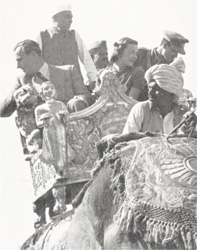
My parents with Nehru on an elephant proceeding to the Mela.
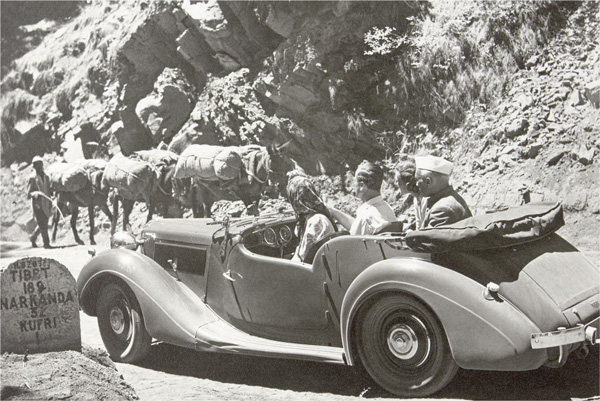
17th May 1948: My father driving my mother, myself and Nehru on the Tibet Road from Mashobra.
India
Remembered
Pamela Mountbatten
Foreword by India Hicks

First published in the United Kingdom in 2007 by
Pavilion Books
151 Freston Road
London, W10 6TH
An imprint of Anova Books Company Ltd
@AnovaBooks
Design and layout Pavilion, 2007
Text Pamela Mountbatten, 2007
The moral right of the author has been asserted.
All rights reserved. No part of this publication may be reproduced, stored in a retrieval system, or transmitted in any form or by any means electronic, mechanical, photocopying, recording or otherwise, without the prior written permission of the copyright owner.
Publisher: Kate Oldfield
Editor: Kate Burkhalter
Designer: Lotte Oldfield
Indexer: Derek Copson
Maps: William Smuts
Digital Editor: Giney Sapera
First eBook publication 2014
ISBN: 9781909815292
Also available in hardback
ISBN 9781862057593
This book can be ordered direct from the publisher at
www.anovabooks.com, or try your local bookshop.
Contents
by India Hicks
by Pamela Mountbatten
The Mountbatten Family Tree
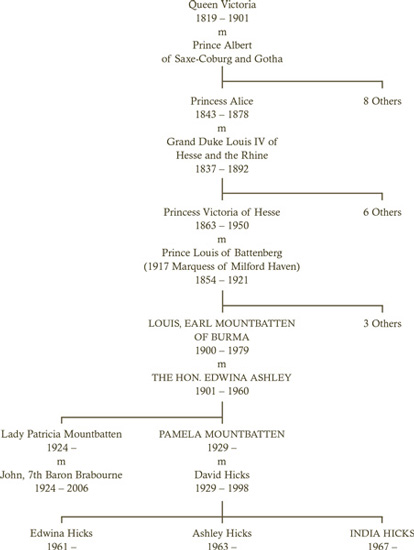
Foreword
by India Hicks
I have led by all accounts an unusual life, coming from an unusual family, carrying with me an unusual name. But my unusual life pales in comparison to that of my mothers. I implored her to tell this extraordinary tale, exactly sixty years later.
I never knew my grandmother, but I clearly remember being told that once after a dinner party in India many years after Independence she was asked who she had sat next to. She replied that he had been a most amusing dinner guest, and when asked if he had been black or white, she simply could not remember.
I knew my grandfather; he was the backbone to our lives. I remember small tasks he would set me, standing tiptoed on a chair pushing his shoulders back hard against a stone wall harder child, harder he would yell; or tickling a blade of grass across his upper lip as he snoozed in the afternoon, softer child, softer. He was the indominatable yet gentle giant, until one sunny August day in Ireland the clouds descended on that childhood forever.
It is hard for me to imagine my grandfather, only a few years older than I am now, being asked to dismantle an empire. Unimaginable the responsibility of stemming the tide of violence and controlling cities that were committing suicide. It is not hard, however, to imagine that from the moment my grandparents arrived, they rejected all the Raj stereotypes and looked towards the job with open minds. It is also understandable that, despite his royal ties, my grandfather was a tough-minded realist, committed to those liberal principles which made him acceptable to Atlees Labour party. Gandhi, the soft-voiced archangel of Indias independence, sensed my grandfathers warmth and responded to it, as he had been unable to do with any previous Viceroy.
Criticism over the damnable haste in bringing British rule to an end has never softened. The blunt fact is that no one foresaw the magnitude of the horrors that lay in wait, and their failure to do so would baffle historians in later years. Nehru and Jinnah each made the grave error of underestimating the communal passions which would inflame the masses of their subcontinent, but it was the relative newcomer in their midst, the Viceroy, who took the blame from the rest of the world.
I have travelled my way around this great country, whose name I so proudly carry, staying in youth hostels, occasionally sickened by the unexpected glimpse of Indias timeless miseries or staying in Government houses of considerable magnitude, lavished upon by luxury. Never once during my numerous visits have I ever encountered an Indian within India who, on discovering who my grandparents were, had any other reaction than to smile from ear to ear and beam in fond remembrance as at an old friend, which is how a generation seems to have regarded them.
My grandparents were successful in moving a country in flames forward, and it was an immense personal tribute to my grandfather to accept Congresss invitation to become the first Governor-General of the Dominion.
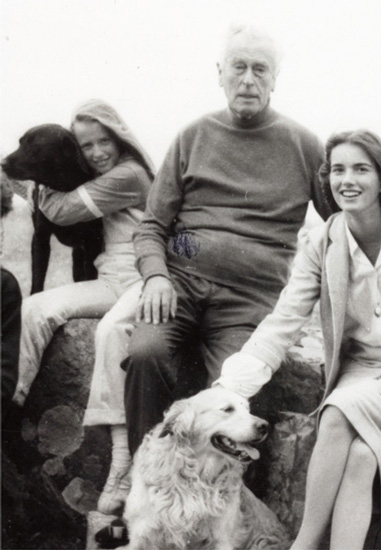
India (left) with her grandfather, Louis Mountbatten, and a family friend.
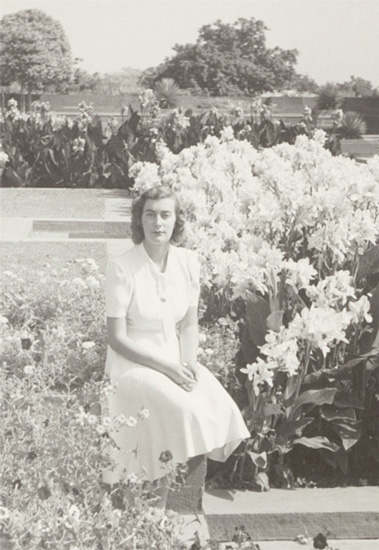
Aged 17 in the Moghul Gardens at Viceroys House.
Introduction
by Pamela Mountbatten
I certainly never planned to write about the time I spent in India with my parents when my father was Viceroy, but I was finally persuaded by my youngest daughter anything for a quiet life. But then again, I find myself pushed into doing all sorts of things I never intended. My daughter India is very, very determined, encouraging me to go riding in Patagonia, undertake safaris and exotic travel, which I had never thought to go on, but which proved unforgettable in her company. On one occasion, however, she did become over-enthusiastic. She telephoned me from New Zealand to say that she had just booked my seventieth birthday present. I was to go hang gliding: Youll love it, Mum. Its thrilling and youll only have to run five paces to take off. I panicked and flatly refused to go. She took me swimming with dolphins instead.
This project is the result of another of her persuasive assaults. At first I simply handed over the diary I began as a seventeen-year-old. Then we went to look in the Broadlands Archives at my fathers photograph albums which he had kept meticulously during his time in India. The pages of his most important album are organised by date and event and carefully captioned in his neat handwriting. As we turned the pages together I found myself remembering those extraordinary months with a vividness reawakened after sixty years. India had many questions and was also overawed by what she saw an eyewitness account of one of the most momentous events in modern history. When I saw her reaction, I realised that she was right: I should publish my memories of this period. Since that day we have spent many hours together surrounded by letters, typescripts and images, trying to piece together that time again in a book that might be intensely personal but also accessible to a new generation of readers.
Next page
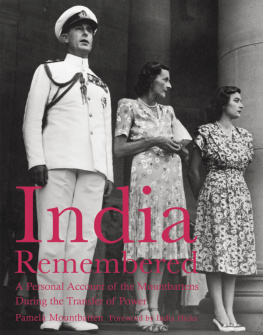

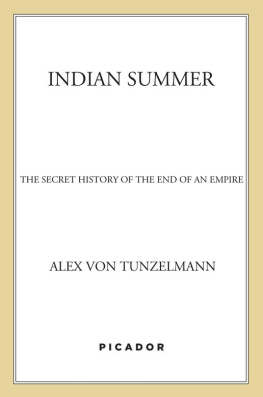
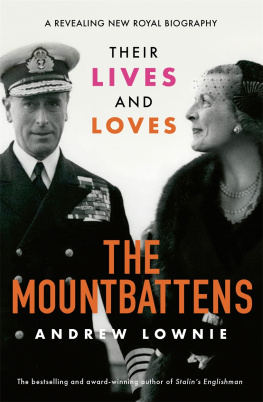
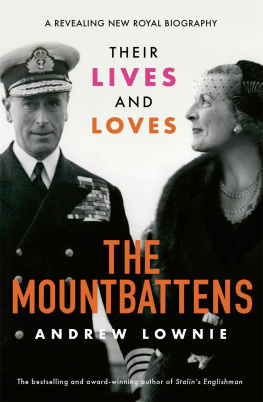
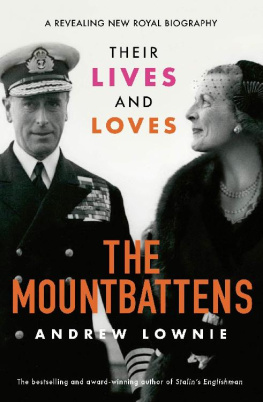
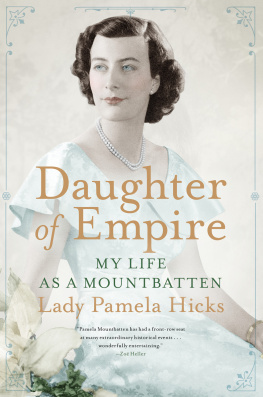


 www.anovabooks.com
www.anovabooks.com




